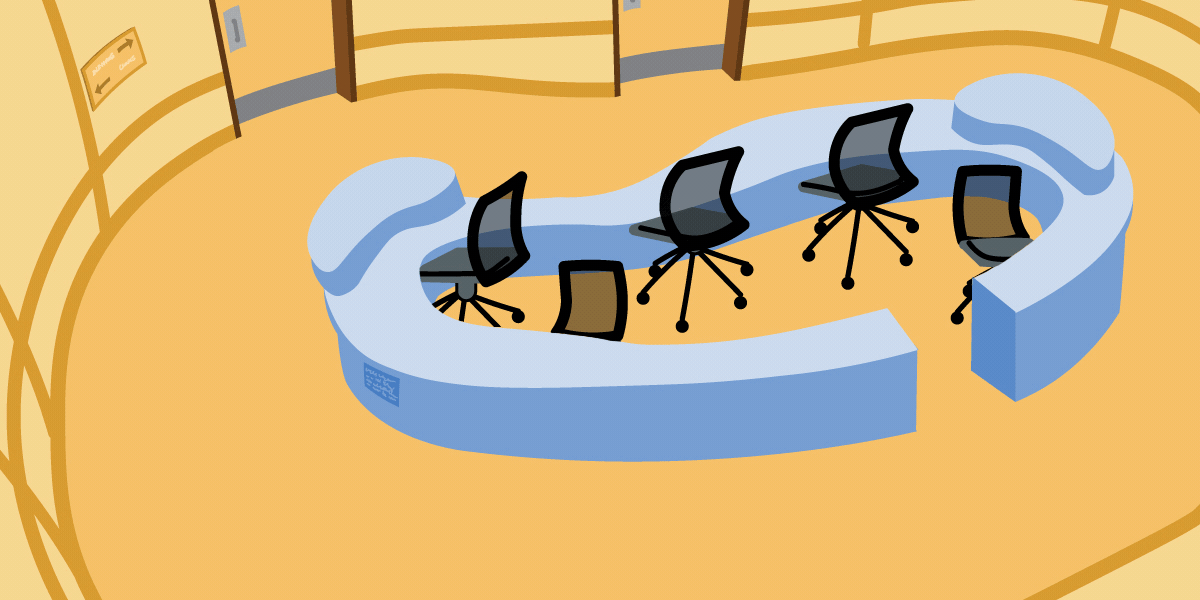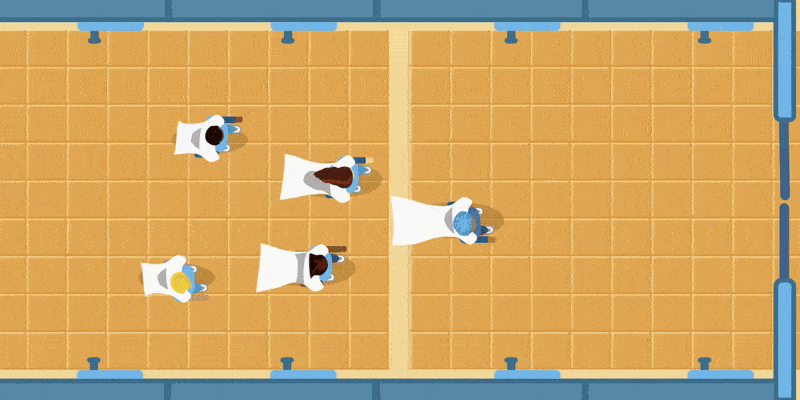In summer 2025, Doximity ran our Women in Medicine essay contest. We are happy to announce this as the winning essay.
A gaggle of white coats was perched near the nurses’ station (or whatever the term for a group of residents — a herd or a pride? A flamboyance? A murder?), waiting. The attending was running late, likely talking to the family of his latest postop patient. We ran the list while we waited, hashing through consults, patient updates, and so on. I was a new intern, and it was my job to rattle off results and imaging studies that had returned that afternoon. I was going over a speech therapy report when my chief stopped me mid-sentence. “Speech therapy?”
“Yes. He was able to take thick and thin liquids. Impressive for a fresh esophagectomy. Passed with flying colors.” I smiled, excited for the patient’s progress.
She stared at me, unmoving, her blue eyes subtly widening, and inhaled sharply.
 A gaggle of white coats
A gaggle of white coats
At that moment our attending burst through the door of the surgical oncology ward, scrub hat still in place, his coat flowing in his wake. We followed without words to the first patient’s room for evening rounds. The surgical list had doubled in size due to a marathon OR day and several ER bounce backs. Rounds would be long and, by the looks of his countenance, tense.
The chief led him to each room, one by one, to see his patients. About five patients in, we were at the threshold of the esophagectomy patient on whom I had so dutifully reported earlier. The chief eyed the attending tentatively before proceeding. At the words “speech therapy,” he bristled. His head turned slowly, eyes narrowed. She stayed steady.
“Who ordered it?”
I began to realize this speech therapy report was a problem. As it turns out, when she had asked for a swallow study the day before, she had meant a radiologic test to evaluate the fresh anastomosis to ensure no leaks were present. Where I went to medical school, speech therapy consults were also referred to as swallow studies. I had given a postop esophagectomy patient liquids and solids, and the results could have been catastrophic. I had failed to use reason or my own (limited) medical knowledge and had reflexively ordered the wrong test.
She replied, “It was a miscommunication. I take responsibility.” He pressed again, and she stood firm. Eventually, we moved on.
 We followed without words
We followed without words
But her refusal to place blame stuck with me. When an error occurs, humans are naturally inclined to find out who did it. But often, instead of who, a better question is how, or why. Seeing my superior, who could have easily thrown me to the wolves, apply this principle, transformed the way I think about and respond to these incidents.
After rounds, she pulled me aside and very gently reprimanded me, which I wholeheartedly deserved. And the aim wasn’t humiliation, but correction. She wanted me to do a better job as a clinician, to read more about the surgeries to acquire understanding of what does and does not make sense when placing orders, and to be present. All things I needed to hear. She knew I didn’t need to be put in front of the firing squad – I was already beating myself up enough.
Her unexpected reaction quietly changed me. I started putting much more thought into my orders, regardless of how busy I was, and made sure to understand the surgeries and perioperative course. But most importantly, I tried to remember her response to my snafu as I advanced to upper-level status. Learning is the primary objective in residency, and it’s been shown time again that people learn best in an environment where they feel secure. This leads to a growth mindset, curiosity, and the loss of self-consciousness and defensiveness.
That scenario on the wards could have played out very differently. The patient could have become very sick (or worse), and obviously that’s the most important detail. Also, the chief could have mentioned my name to the attending, and that wouldn’t have been wrong. But because of how she handled it, I learned about more than postoperative order semantics. And, instead of only recalling feelings of humiliation and shame, I learned how important it is to communicate clearly, to think about what you’re ordering, to flip the autopilot switch off, and to show kindness to a junior, when possible.
 A curtain was pulled back
A curtain was pulled back
So, the goal of learning was accomplished that day of my residency because of her. I’m certain she doesn’t remember the incident and likely doesn’t remember me. Why she did it, I don’t know, but I suspect it stemmed from compassion, and even wisdom. Regardless, my outlook and behavior shifted. A curtain was pulled back, and a truth revealed. The transformation was subtle, but it affected me on a systemic level, whenever I face a mistake to this day. And on a more meta scale, I realize that a leader’s behavior can produce a ripple effect; here I am, thirteen years later, writing about this, with a different outlook and approach, because of a small, unexpected pivot in behavior.
I must mention a delicate aspect of this scenario: the stereotype of cattiness associated with women who work together in a stressful environment, which I begrudgingly acknowledge as an occasional reality. Any woman who has gone through residency (or middle school) can attest to that. But this female chief’s turn to solidarity with a very green female intern resulted in an atmosphere of collaboration and growth while wiping away that fallacy that a good chief must be ruthless.
Residency can be a malignant process. The mentality of paying your dues still prevails, I’m sure. But the cycle broke a little that day. It’s hard to always practice this gentler and wiser approach in the face of an error, but because of her, I am equipped with the notion to try.
Dr. Bailey is a board-certified urologist but is no longer practicing the specialty. She is currently doing non-clinical review work and is interested in residency/workplace culture and current trends in career change.
Animations by Jennifer Bogartz, April Brust, Diana Connolly, and Joe Lee






